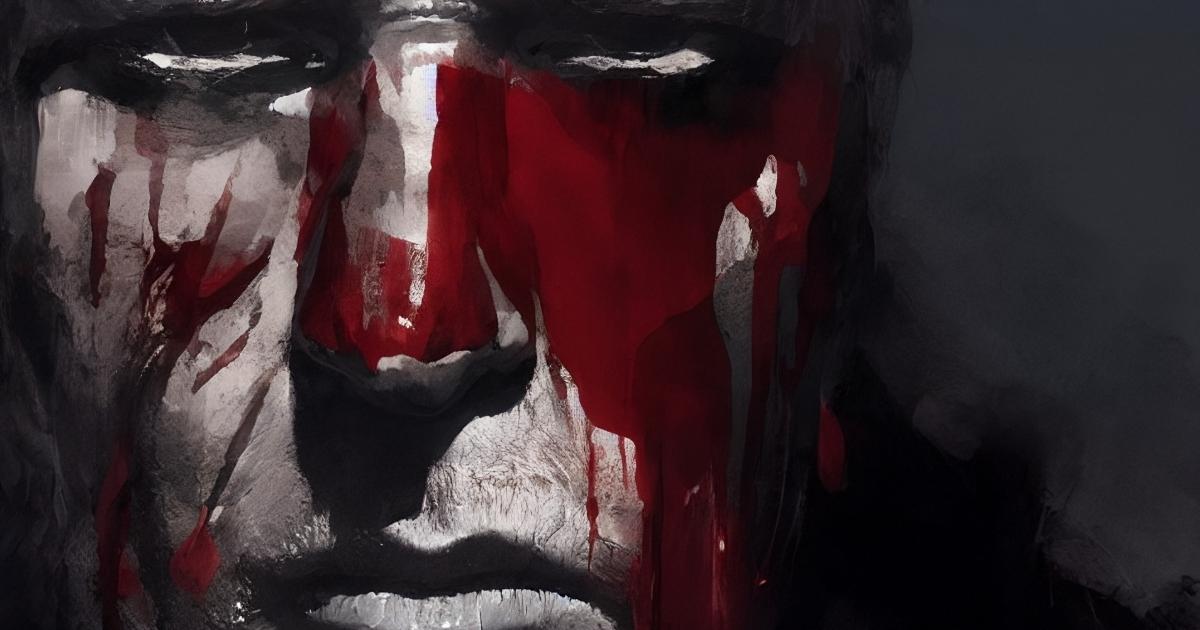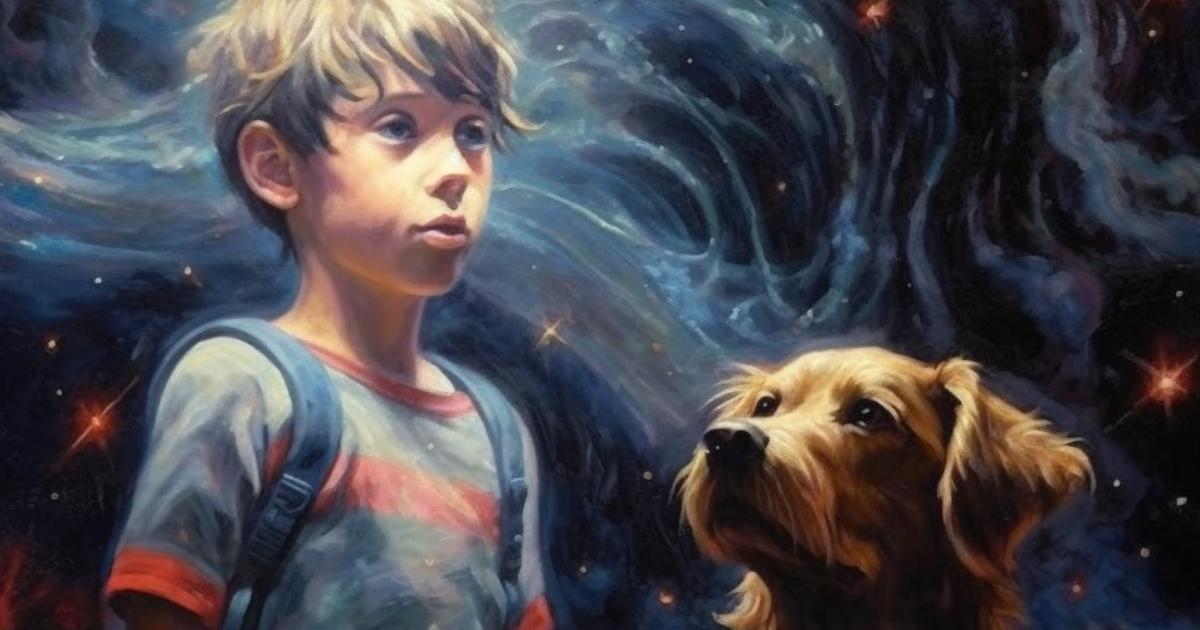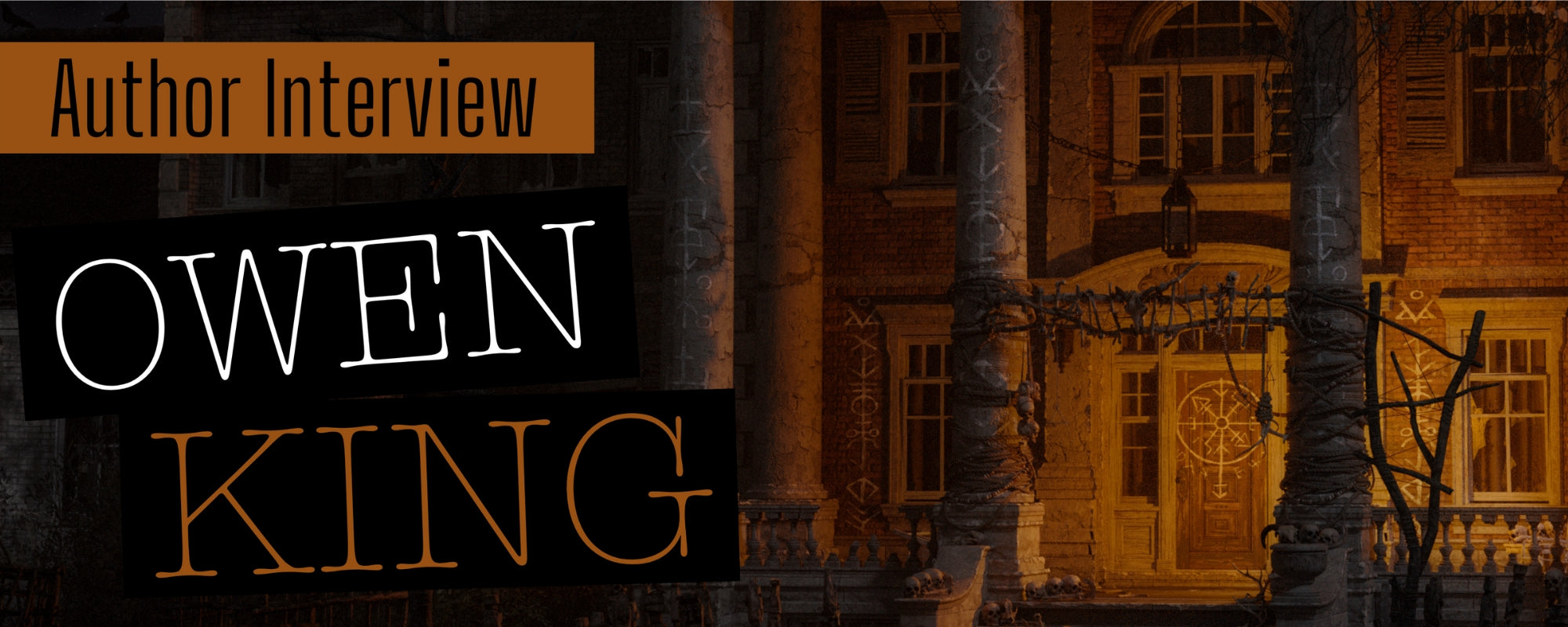
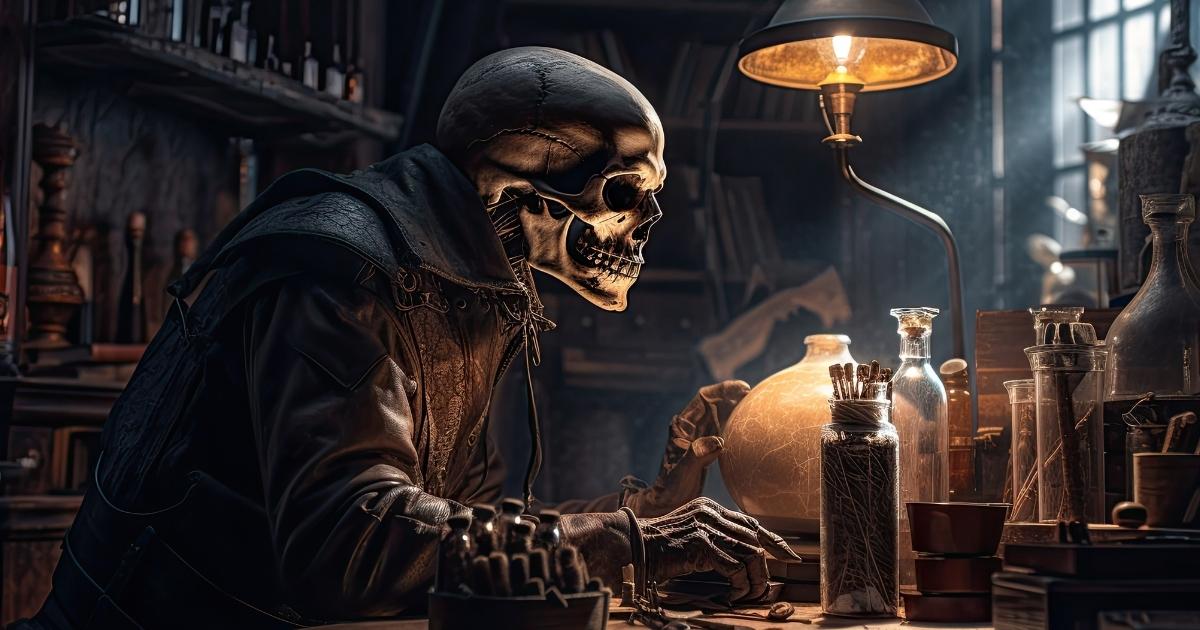
Author Interview: Owen King
Feature by Janelle Janson
Are you looking for an exhilarating gothic fantasy novel to sink your teeth into? Maybe with a bit of magic and lots of cats?? Look no further than Owen King’s latest, The Curator. I had the pleasure of chatting with the gifted author about his creative process, inspirations, and the challenges of standing out in a family of literary legends. In our conversation, Owen’s wit, intelligence, and thoughtful approach to storytelling truly shined. Whether you’re a fan of horror, suspense, or just great writing, you won’t want to miss what Owen has to say about his latest work, in stores now.
Are you looking for an exhilarating gothic fantasy novel to sink your teeth into? Maybe with a bit of magic and lots of cats?? Look no further than Owen King’s latest, The Curator. I had the pleasure of chatting with the gifted author about his creative process, inspirations, and the challenges of standing out in a family of literary legends. In our conversation, Owen’s wit, intelligence, and thoughtful approach to storytelling truly shined. Whether you’re a fan of horror, suspense, or just great writing, you won’t want to miss what Owen has to say about his latest work, in stores now.
Janelle Janson: Owen, thank you so much for taking the time to chat with me today. I just have to say that I am a huge fan of your work, and I am thrilled to have the opportunity to ask you some questions about your latest novel, The Curator. As soon as I saw the cover with that giant cat, I knew I had to read it! Can you describe your book in ten words? (Usually, I say five, but it’s a big book!)
Owen King: I think I can do this, but I’m going to have to rely a bit heavily on hyphens! Let’s see: Victorian-set, Alt-history, Murder, Revolution, Conspiracy, Museum, Dora, Robert, Ike, Cats.
JJ: That sums it up nicely! When did you start working on The Curator, and what inspired you to write it? Was it an easy book for you to write?
OK: It actually started as one of a series of sentences that I randomly typed up while I was trying to prompt myself. I wrote something along the lines of, “In the aftermath of the coup d’etat, D contrived to gain the curatorship of the National Museum of the Worker.” I recall looking at the sentence and thinking, “Hey, that’s interesting,” and after pondering it for a bit, I had a general sense of a short story. D, the character in the sentence, was a domestic servant with a number of secrets, and her decision to seize the moment in the disarray that follows the revolution, to advance her position, came with an ulterior motive, a desire to solve a mystery that related both to the museum and to her past. So, the narrative built itself pretty quickly in my head and, most importantly, I knew how I wanted it all to feel—foggy and uneasy and resonant of the 19th-century. That turned into a story called “The Curator” that was published in the zine Lady Churchill’s Rosebud Wristlet and anthologized in a collection called Detours.
However, I felt like there was a lot of material just around the edges of that original piece that I still wanted to explore, that I thought would deepen the story and make it more complete, and that led to the novel.
I can’t say the novel was easy to write—it took around three years to finish—but it was fun.
JJ: That’s a spectacular origin story! When reading, your characters come to life on the page. Do you have a favorite character? Which character was the most difficult to write? Was it difficult for you to say goodbye after you finished?
OK: Dora is my favorite character in the novel, and I was very sorry to leave her behind. She’s incredibly smart and observant, courageous and quick-witted, and consistently underestimated by a society wherein everything is stacked against a single woman with no family and no resources. Dora is flawed, too, like all people are, and makes plenty of mistakes. I hope she seems as real to readers as she did for me, and that they root for her as much as I did.
The most challenging character to write was probably Robert, a young revolutionary who is Dora’s lover. On the one hand, Robert is devoted to the cause of creating a more democratic society, but on the other, his behavior is deeply illustrative of the patriarchal attitudes of the quasi-Victorian period—which means he can be quite off-putting. He’s not static, though. Part of the story tracks a growing self-awareness in him.
JJ: The setting of The Curator is in an unknown place and time. Why did you choose this approach, and was it important for you to explore the themes of politics and class divide? Did any real-world events or experiences influence your writing?
OK: One of the great things about Victorian novels like Great Expectations and Bleak House is the way in which Dickens surveys his society, letting us glimpse how people who are less and more prosperous live, and I wanted to echo that mode. It fits well, I think, with a story about a revolution. We see all the ways in which the city is beset by inequality, and how the different characters are struggling—or not. The inspiration here is, I’m sure, on some level an echo of the vast inequalities in our own time and place.
There are clues that tell us that the unnamed city where the story is set exists in a world that’s a version of the one that we know. Constantinople is mentioned, for instance, as well as Cuba, but there are also two moons and magic! My hope is that the combination of the familiar and the unreal is evocative, and helps to convince the reader that here, in this place on the page, the impossible is possible.
JJ: The blend of reality and magic is beautifully done. In The Curator, you explore themes of memory, grief, and the power of storytelling. Why were these themes important for you to explore, and how do they relate to your personal experiences or worldview?
OK: While I don’t believe that our memories and the losses that we’ve experienced in our lives explain everything about us—not by a longshot!—they are important aspects of our characters, and they inform our behavior. Dora is driven by a terrible, confusing loss that she suffered in her childhood. Much of the novel concerns her effort to unravel what exactly happened. But the intelligence that she brings to bear on that mystery is inherent.
JJ: I have to say, the cover designs for both the US and UK editions of The Curator are stunning! Did you have any input in their design? Also, I have to give a shoutout to the audiobook narrator, Marin Ireland, who did a fantastic job. How involved were you in the process of selecting a narrator?
OK: I didn’t have a whole lot to do with the design of either cover, but I love them, too! I did suggest Marin Ireland as narrator, because in my opinion, she’s the best in the business, a performer with an unparalleled range.
JJ: Your writing in The Curator is characterized by beautiful prose, dream-like imagery, and unique metaphors. Can you talk about your approach to writing and crafting the language in your novel? Would you be willing to dazzle us with a favorite quote from the book?
OK: The language in the book is definitely meant to evoke Victorian novels like the ones written by Dickens and Trollope and Elizabeth Gaskell and others. There’s a sweep and a sense of linguistic play in so much of what they wrote. Of course, I can’t write as effortlessly as those 19th-century authors (geniuses all), and I don’t want to mimic them, but I did make a conscious effort to stretch my prose an extra degree, to elaborate slightly more than I might have if the story had been set in a contemporary environment.
I like this part, although I’m not sure how it reads out of context:
“He was insane and, she was certain, had definite plans to murder her when his schedule opened up.”
JJ: Such a great quote! You come from a family of famous writers, including your parents, Stephen (Constant Reader here!) and Tabitha King, brother Joe Hill (NOS4A2—a masterpiece), and your wife, Kelly Braffet (big fan!). How has your family background influenced your own writing, and what have you learned from your family members about the craft of writing?
OK: First and foremost, being around my parents taught me from a young age that writing books was hard work, self-driven, and time-consuming. They went to their offices and shut the doors behind them each day, and proceeded to clatter away at their typewriter keys for hours on end. It was honestly a little daunting! That focus and commitment requires a conscious effort to develop.
JJ: That’s an interesting perspective. All of the commitment and hard work (paired with talent) certainly paid off. All of you—such brilliant writers. Your works span multiple genres and forms, including novels, short stories, and non-fiction. How does your creative process differ between these different forms of writing? Do you have a favorite form to work with?
OK: I’m not sure I have a favorite form. I find screenwriting to be the most accessible because the parameters of the medium necessitate that you keep description and point-of-view to a minimum. I can jump right in there pretty much immediately, and I enjoy doing it a lot. That said, even though it takes a daunting amount of time, when it comes to the end product, I find novel-writing the most satisfying.
JJ: Many of your stories feature elements of horror or the supernatural. What draws you to these genres, and how do you balance the fantastical elements of your stories with more realistic, grounded elements? Also, is there another genre or subgenre you would like to explore?
OK: The inspiration behind different stories and novels varies a lot, so I’m not sure I have a great answer to first part of your question, but I do feel that it’s crucial that fantastical fiction have a strong reality. The incredible—Superheroes! Monsters! Secret Societies of Evil Conspiracists who feed on the souls of the innocent!—won’t convince a reader unless it’s happening
within a fictional world that’s thoroughly imagined. The commonplace stuff—the garbage smell from the alley, the signs of wear at a character’s shirt collar—is as important as the amazing stuff, like the shifting of the dragon’s scales and so on.
JJ: I love that answer! What advice would you give to aspiring writers who are just starting out? Are there any lessons or insights you’ve learned throughout your own writing career that you wish you had known when you were beginning?
OK: The two fundamental suggestions I’d make are not original, but nonetheless: 1) Read all the time; 2) Do your best not to be discouraged by rejections. It also helps to realize that I get rejections, Neil Gaiman gets rejections, Zadie Smith gets rejections, everyone gets rejections.
JJ: Your stories often feature complex, multi-dimensional characters. How do you approach creating these characters, and what are some of the techniques you use to bring them to life on the page?
OK: I imagine my characters in their
day-to-day life, going about their business, just surviving. While very little of their lives will actually appear in a story or a novel, it’s important to me that I be able to conceive of them outside the bounds of the narrative. Another way to put that would be to say that I want to believe in them beyond the context of an adventure.
I also focus hard on the flaws of every character. Real people are deeply imperfect.
JJ: This must be why your characters feel so alive. As a reader, you imagine every facet. Now let’s do a quick round of This or That! Science fiction or horror?
OK: For this game, I’m going to make my selections based on what I prefer for fictional subjects, setting, categories, etc., which I think is the idea. Right?
With that said…horror.
JJ: Star Wars or Star Trek?
OK: Star Wars.
JJ: Haunted house or possession?
OK: Haunted house.
JJ: Cemetaries or parks?
OK: Parks.
JJ: Dogs or cats?
OK: Cats.
JJ: Sunshine or rain?
OK: Rain.
JJ: Cadavers or clowns?
OK: Clowns. But Stiff by Mary Roach is a wonderful book that is literally all about cadavers.
JJ: True crime or crime fiction?
OK: Crime fiction.
JJ: Airplane or road trip?
OK: Airplane.
JJ: Graphic novels or comic books?
OK: Graphic novels.
JJ: Historical fiction or modern fiction?
OK: Historical fiction.
JJ: Psychological or slashers?
OK: Psychological.
JJ: Thank you for indulging me. But now it’s time for the LIGHTNING ROUND! What book do you always recommend?
OK: The Dog of the South by Charles Portis.
JJ: What’s the best book you’ve read so far in 2023?
OK: Outlawed by Anna North
JJ: What book got you into reading?
OK: Kidnapped by Robert Louis Stevenson was an early favorite that captured my imagination.
JJ: What is your favorite horror movie?
OK: Evil Dead 2.
JJ: Your favorite science fiction movie?
OK: Aliens.
JJ: What scares you the most?
OK: Losing my loved ones.
JJ: Final questions. What are you working on now? Anything new to announce?
OK: I’m writing a comic book with my friend Jesse Kellerman. It’s a crime story called Self Help, and we will have an announcement about the publication schedule really soon.
The Curator, from Scribner, is available now, wherever books are sold.
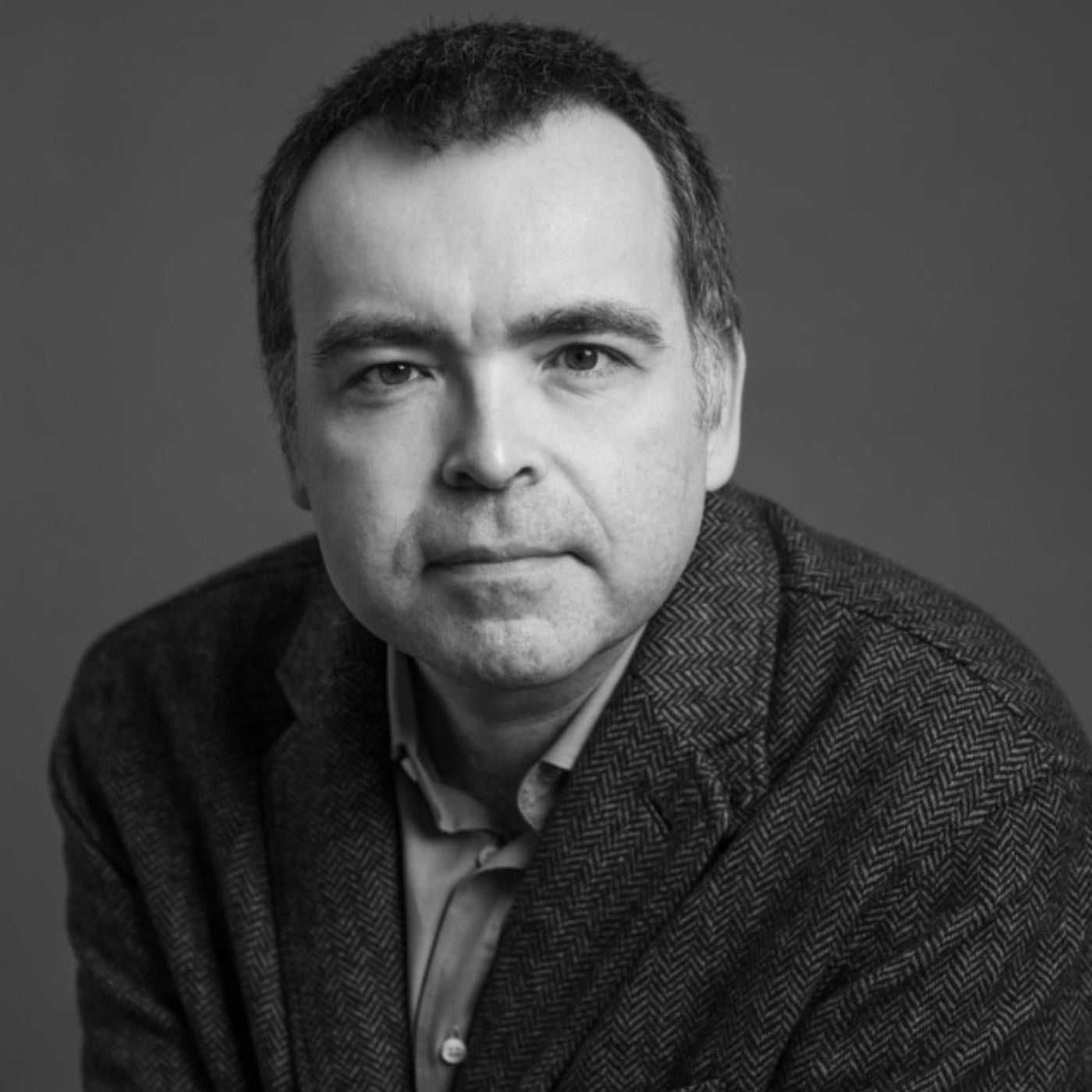
Owen King

Janelle Janson
Feature Writer
Continue reading
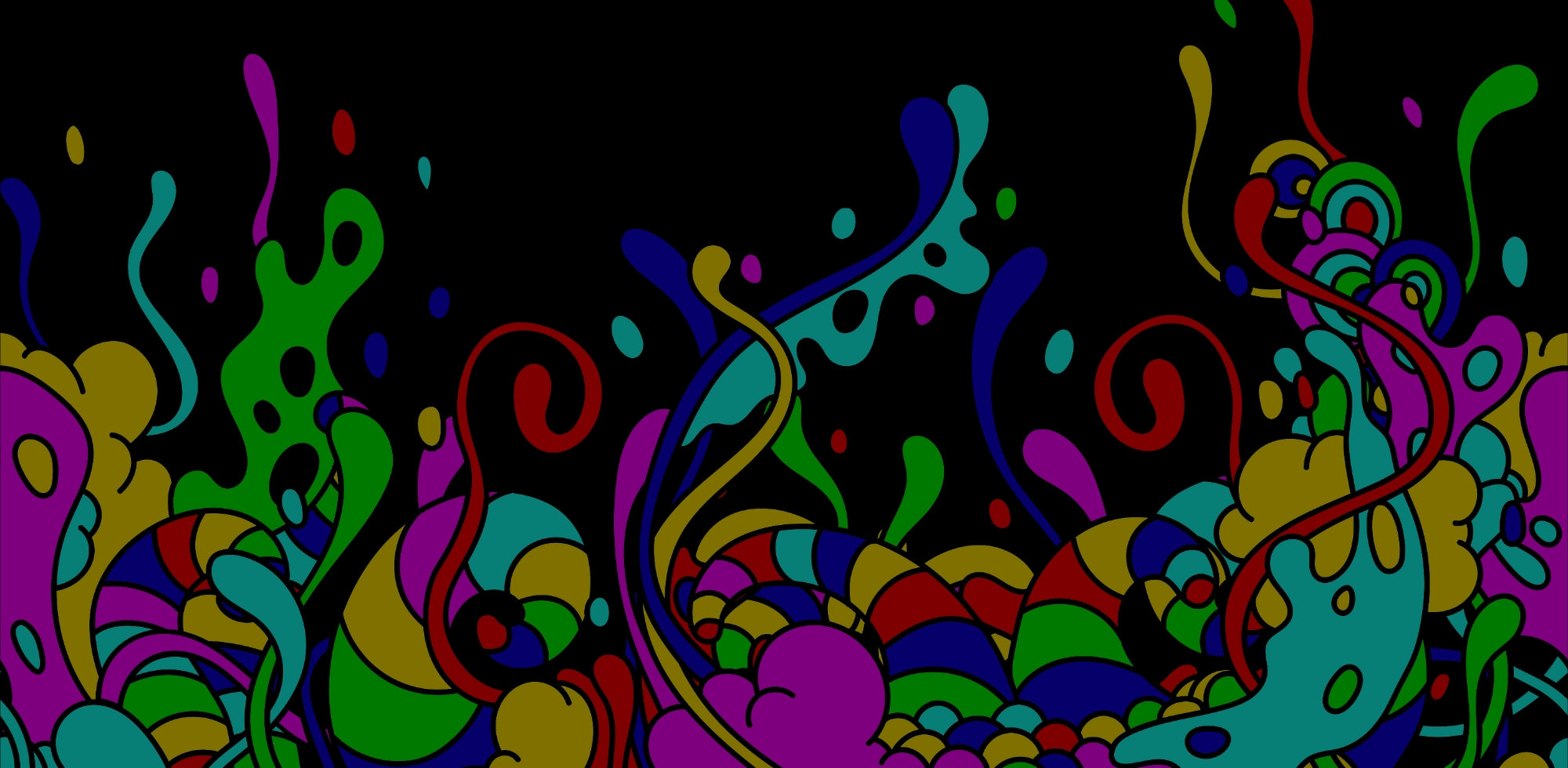
Get Author Updates
Promotions, new products and sales. Directly to your inbox.





